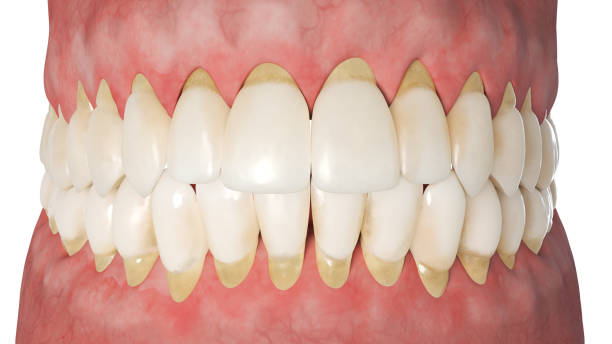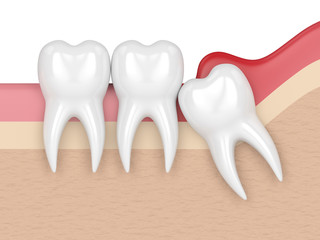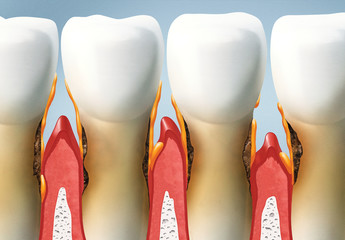Gum diseases, also known as periodontal diseases, are common dental problems affecting millions worldwide. These diseases are caused by bacteria that live in the mouth and form plaque, a sticky film of bacteria, and food debris that accumulates on the teeth and gums. If left untreated, gum diseases can lead to tooth loss, gum recession, and even systemic health problems such as heart disease and diabetes.
Several types of gum disease can affect the health of your gums and the tissues that support your teeth. Here are five common gum diseases, along with their symptoms and treatments:
1. Gingivitis: This is the mildest form of gum disease and is characterized by inflammation of the gums. Symptoms include red, swollen gums that result in bleeding when brushing your teeth. Read more on: how to stop your gums from bleeding. Gingivitis can usually be treated with a professional dental cleaning and improved oral hygiene.

2. Periodontitis: This is a more advanced form of gum disease that results in inflammation, loss of the gum tissue and supporting bone, and the formation of pockets between the teeth and gums. Periodontitis may even cause tooth loss and gum recession. Symptoms include bad breath, loose teeth, and a change in the fit of partial dentures. Periodontitis is treated with a deep cleaning to remove bacteria and plaque from the teeth and gums. It may also involve medications or surgery to restore the supporting tissues.

3. Abscessed tooth: Dental abscesses or abscessed teeth are collections of pus that form inside the teeth, in the gums, or in the bone that holds the teeth in place. Bacterial infections cause them. Dental abscesses are often painful and don’t go away on their own. Symptoms include tooth pain, fever, and swelling. An abscessed tooth may even make a person ill if not treated on time. Treatment may involve draining the abscess, taking antibiotics to clear the infection, and possibly extracting the tooth.

4. Pericoronitis is an inflammation of the gum tissue surrounding a partially erupted tooth, such as a wisdom tooth. The main cause of pericoronitis is a bacterial infection. Symptoms may include pain, swelling, difficulty opening the mouth, and bad breath. Treatment may involve antibiotics to clear the infection and even remove the wisdom tooth or a portion of the gum tissue. It is important to see a dental professional for a proper diagnosis.

5. Necrotizing periodontal disease: This is a rare but severe form of gum disease affecting people with compromised immune systems, such as HIV/AIDS patients or organ transplant recipients. As a result of the disease, both soft (gums) and hard tissue (alveolar bone (supporting bone) defects can make oral hygiene difficult. Symptoms include painful, ulcerated gums and the loss of gum tissue. Treatment may involve antibiotics, debridement (removal of infected tissue), and possibly surgery.

Healthy people normally have hundreds of different types of bacteria in their mouths. Most of them are entirely harmless. When you don’t clean your teeth properly each day, bacteria grow and build up on your teeth. Periodontitis is typically caused by poor dental hygiene. It’s important to practice good oral hygiene and visit a dentist regularly to help prevent gum disease.
If you’re experiencing symptoms of gum disease, it’s important to see a dentist or a periodontist as soon as possible for a proper diagnosis and treatment plan. At Summirow Dental hospital, our experienced dentists in Gujarat specialize in solving gum diseases and caring for your teeth. We aim to help you eliminate gum problems and achieve optimal dental health. Early treatment can help prevent the progression of the disease and preserve your oral health. So, taking care of your gums and teeth is very important to prevent gum diseases.

